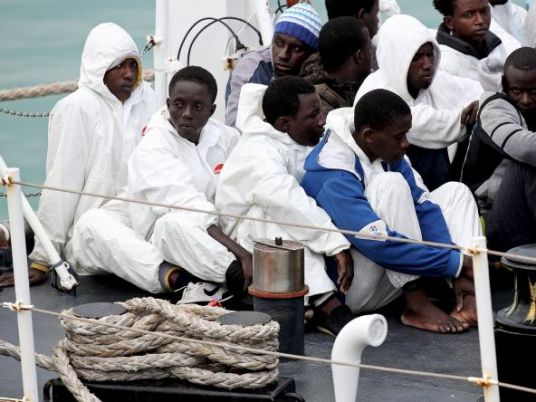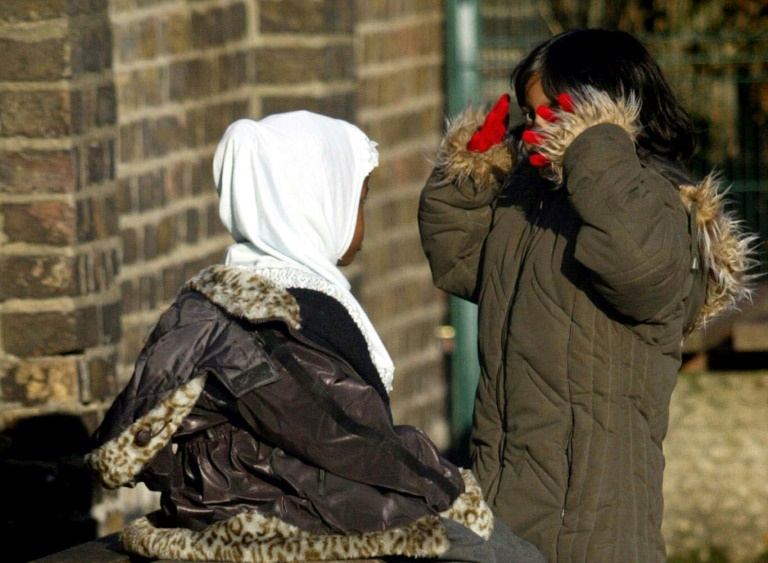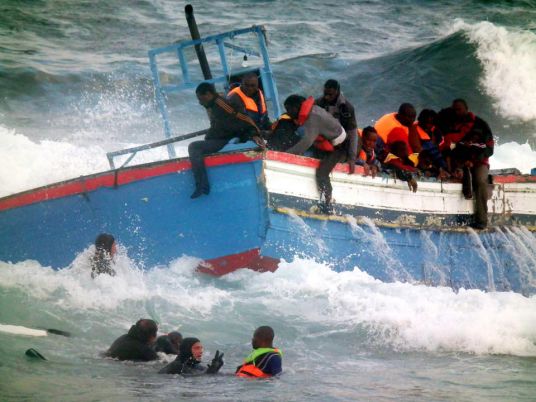
In a cavernous market just outside Rome, migrant boys from North Africa shunt trolleys stacked high with crates of melons, garlic, tomatoes, strawberries and other Italian produce.
Some of the younger market porters, believed as young as 12 and known to be working illegally, bowed their heads when approached by the Thomson Reuters Foundation, dodging eye contact before disappearing into warehouses.
Between January and April this year, 2,556 children arrived on Italy's Mediterranean coast, according to the United Nation's refugee agency. More than half of them were unaccompanied minors, many from North African countries including Egypt.
The total number of migrants landing along Italy's coast in the first five months of this year has risen to 45,400 from 41,243 a year ago, according to the International Organisation for Migration, which includes thousands of minors.
But seeking to escape economic hardship and political instability at home, migrant children are being sexually exploited and compelled to work without permits and for little pay in Italy, the Thomson Reuters Foundation discovered.
At least 10 Egyptian minors were seen working at Rome's fruit and vegetable wholesale market, Centro Agroalimentare Roma (CAR), one day in late May.
One adult Egyptian market trader, who declined to be named, pointed to a porter he said was aged 12.
"Five years ago there used to be even more of them. Now numbers are rising again," he said.
The rising tide of North African migrants has pushed Italy's asylum system to breaking point, officials say, forcing many unaccompanied minors to work illegally and prompting calls for changes to the law to protect them from exploitation.
European Union legislation states unaccompanied minors should be fingerprinted on arrival in Italy and stay there but in reality large numbers travel on to other countries.
Egyptians account for nearly a quarter of child asylum seekers in Italy, government data shows.
Many are sent by relatives to earn money in a bid to pay off family debts but instead they end up working for little reward.
"I'm paid 20 euros ($20) per day," said Mahmoud, 18, from the Nile delta region, who said he began to work as a porter at CAR at the age of 16.
An older trader said many lie about their age to get work.
Moments later, three North African boys scaled the perimeter wall, close to a security guard, who appeared to do nothing.
"We have had to step up controls, but we are not the police," said one market official, who refused to give his name.
A spokesman for the market acknowledged the problem and said last year the market's directorship sent a letter to government officials protesting that child labourers' health was at risk.
Government officials also admitted the scale of the problem.
"No single authority can solve the issue in light of the large inbound volume and turnover of [migrant] minors," an official for the Ministry of Labour and Social Affairs told the Thomson Reuters Foundation.
SEXUAL EXPLOITATION
Many of the migrants, who are provided a case worker once they register with the authorities, skip school to try to make money, but end up destitute, campaigners say.
"They arrive expecting to earn enough to send back to their families … but find that it is not that easy," said Ilaria Olivieri, coordinator of Save The Children's programme Civico Zero, a drop-in centre for child migrants.
"Many of the boys lose their jobs before they get paid … "so this is a form of exploitation," Olivieri said.
Civico Zero said it has supported more than 740 young migrants since January 2014.
In the charity's converted depot, close to the city's Termini railway station, Egyptian boys gather round, laughing, joking in Arabic, draping their arms around their friends.
It's a world away from the dark underworld some inhabit.
Along the corridors and platforms of Termini where police arrested five suspected members of a paedophile ring in late May, migrant children loiter at dusk.
"I started flirting with gay men," said one of the Egyptian boys in Civico Zero, his arms showing scars from drug abuse, "but only when I needed something, like a couple of euros or a cigarette".
"When they asked for something in return, I would not let them push me to do something I did not want to do," said the 16-year-old boy who now sleeps rough.
"I have friends who used to prostitute themselves. They would get $100 a time," he added.
Olivieri said many children conceal the exact nature of their involvement with paedophiles but there's evidence the problem is widespread. Data collected by a team of Italian dermatologists showed widespread evidence of sexually transmitted diseases.
"Fifty percent of unaccompanied African minors, all of them boys, visited by our [medical] teams, are victims of sexual exploitation," said Professor Aldo Morrone, a specialist in tropical medicine at Rome's San Gallicano hospital, by email.
Morrone said the boys had developed genital warts but further tests could not be carried out because of a lack of parental authorisation.
With migrants arriving in larger numbers along Italy's coast, some campaigners want to see a change in the law.
"The problem lies in the first period after [the migrants] arrive. If you do not have an efficient system able to give them a home and a place in a school then it becomes very dangerous," said Sandra Zampa, a member of parliament with the governing Democratic Party who sits on a cross-party committee on child protection.
"In recent years, 3,000 of the young migrants disappeared. Some go to other EU countries, some fall into organised crime, but too many end up in juvenile prisons," said Zampa, who is working on draft legislation to strengthen child protection.
An official from the Ministry of Labour and Social Affairs said it had taken steps to track and support unaccompanied minors, enhancing inspections and surveillance, and financing several programmes aimed at combatting clandestine labour.
Not all child migrants have benefitted from efforts to reach them before it is too late.
"If I could rewrite history, I would never have left Egypt," said the 16-year old Egyptian boy, forlornly.


